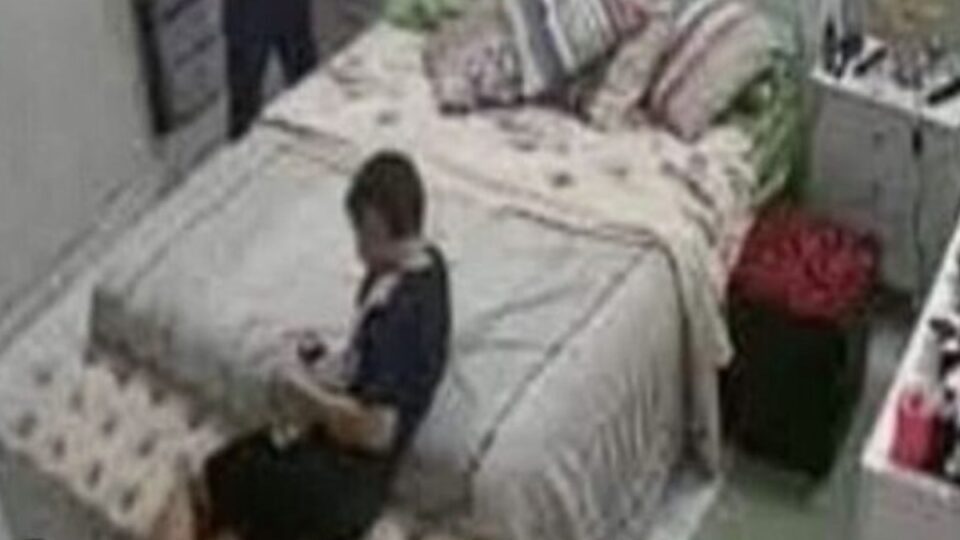In today's fast-paced world, parents often find themselves juggling multiple responsibilities while ensuring the safety and well-being of their children. The use of technology, particularly CCTV cameras, has become a popular solution for many families. CCTV mom and kid dynamics have emerged as a significant topic of discussion, shedding light on how surveillance can play a role in parenting. As parents navigate the challenges of raising children in a digital age, they are increasingly turning to security cameras to help keep an eye on their little ones.
With the rise of smart home technology, the integration of CCTV systems into daily life has become more accessible than ever. For many mothers, having a CCTV system enables them to monitor their children's activities, whether they are at home or away. This technology offers peace of mind, allowing moms to focus on their tasks without constantly worrying about their child's safety. However, the use of CCTV in family settings raises several questions about privacy, trust, and the overall impact on the parent-child relationship.
As we delve into the topic of CCTV mom and kid, it's essential to consider both the benefits and potential drawbacks of using surveillance technology in family life. By exploring various perspectives, we can gain valuable insights into how CCTV can effectively support parenting while also addressing concerns regarding privacy and autonomy. Join us as we explore this multifaceted issue, examining the implications of CCTV use in modern parenting.
- Tragic News Justin Beber Death Shocks Fans Worldwide
- Exploring The Life And Sexuality Of Britney Griner
What Are the Benefits of CCTV for Moms and Kids?
Utilizing CCTV systems at home can offer numerous advantages to mothers looking to ensure their children's safety. Here are some of the key benefits:
- Enhanced security: CCTV cameras deter potential intruders and provide a sense of safety.
- Real-time monitoring: Parents can keep an eye on their children’s activities from anywhere, providing peace of mind.
- Emergency response: In case of an emergency, having recorded footage can help in assessing the situation and providing crucial information to authorities.
- Promotes independence: Children can explore their environment while parents monitor their safety from a distance.
Are There Any Risks Involved with CCTV Use?
While the advantages of using CCTV systems are notable, certain risks and concerns must also be addressed:
- Privacy concerns: Constant monitoring may lead to feelings of discomfort or invasion of privacy for children.
- Trust issues: Over-reliance on surveillance can undermine the parent-child relationship, fostering distrust.
- False sense of security: Parents may become complacent, believing CCTV alone is sufficient for child safety.
How Can CCTV Systems Foster a Positive Parent-Child Relationship?
When used thoughtfully, CCTV technology can enhance the parent-child dynamic. Here are some ways to foster a healthy relationship:
- Unveiling The Life And Career Of Joely Richardson
- Exploring The Unique Sound Of The Blake Fieldercivil Band
- Open communication: Discuss the purpose of the CCTV system with children, ensuring they understand its role in safety.
- Set boundaries: Establish clear guidelines about when and how surveillance is used to maintain trust.
- Involve children: Encourage kids to be part of the decision-making process regarding surveillance, helping them feel empowered.
What Features Should Moms Look for in CCTV Systems?
Choosing the right CCTV system can make a significant difference. Here are essential features to consider:
- High-definition video quality: Clear images are crucial for effective monitoring.
- Night vision: This feature allows for visibility in low-light conditions.
- Two-way audio: Enables communication between parents and children through the camera.
- Remote access: Provides the ability to view camera feeds from smartphones or computers.
What Role Does Parenting Style Play in CCTV Use?
The effectiveness of CCTV systems can vary depending on the parenting style adopted by the mother. Here are some styles and their implications:
- Authoritative Parenting: This style balances monitoring with open communication, creating a healthy environment for CCTV use.
- Permissive Parenting: May lead to over-reliance on surveillance, which can hinder the child's development of independence.
- Neglectful Parenting: Lack of monitoring, whether through CCTV or otherwise, can compromise child safety.
Can CCTV Technology Impact a Child's Development?
There is an ongoing debate regarding the potential impact of CCTV on a child's development. Here are some considerations:
- Independence: Children monitored through CCTV may struggle to develop independence if they feel constantly observed.
- Trust issues: Excessive surveillance can lead to a lack of trust between parents and children.
- Safety awareness: Awareness of being monitored may enhance a child's understanding of safety but can also induce anxiety.
What Are the Key Takeaways for Moms Considering CCTV?
As technology continues to evolve, moms must navigate their use of CCTV systems thoughtfully. Here are some key takeaways:
- Balance is crucial: Strive for a balance between monitoring and fostering independence.
- Engage children: Involve them in discussions about surveillance, ensuring they feel heard and respected.
- Stay informed: Keep up with technological advancements and be proactive in addressing privacy concerns.
Conclusion: Embracing CCTV in Parenting
In conclusion, the role of CCTV mom and kid is a complex yet increasingly relevant topic in modern parenting. By understanding the benefits and potential risks of CCTV systems, moms can make informed decisions that enhance their parenting experience. Ultimately, embracing technology while prioritizing open communication and trust can lead to a healthier family dynamic, ensuring that both moms and kids thrive in an ever-evolving world.
- Exploring The Life And Sexuality Of Britney Griner
- Understanding Beittany Griner A Deep Dive Into Identity


